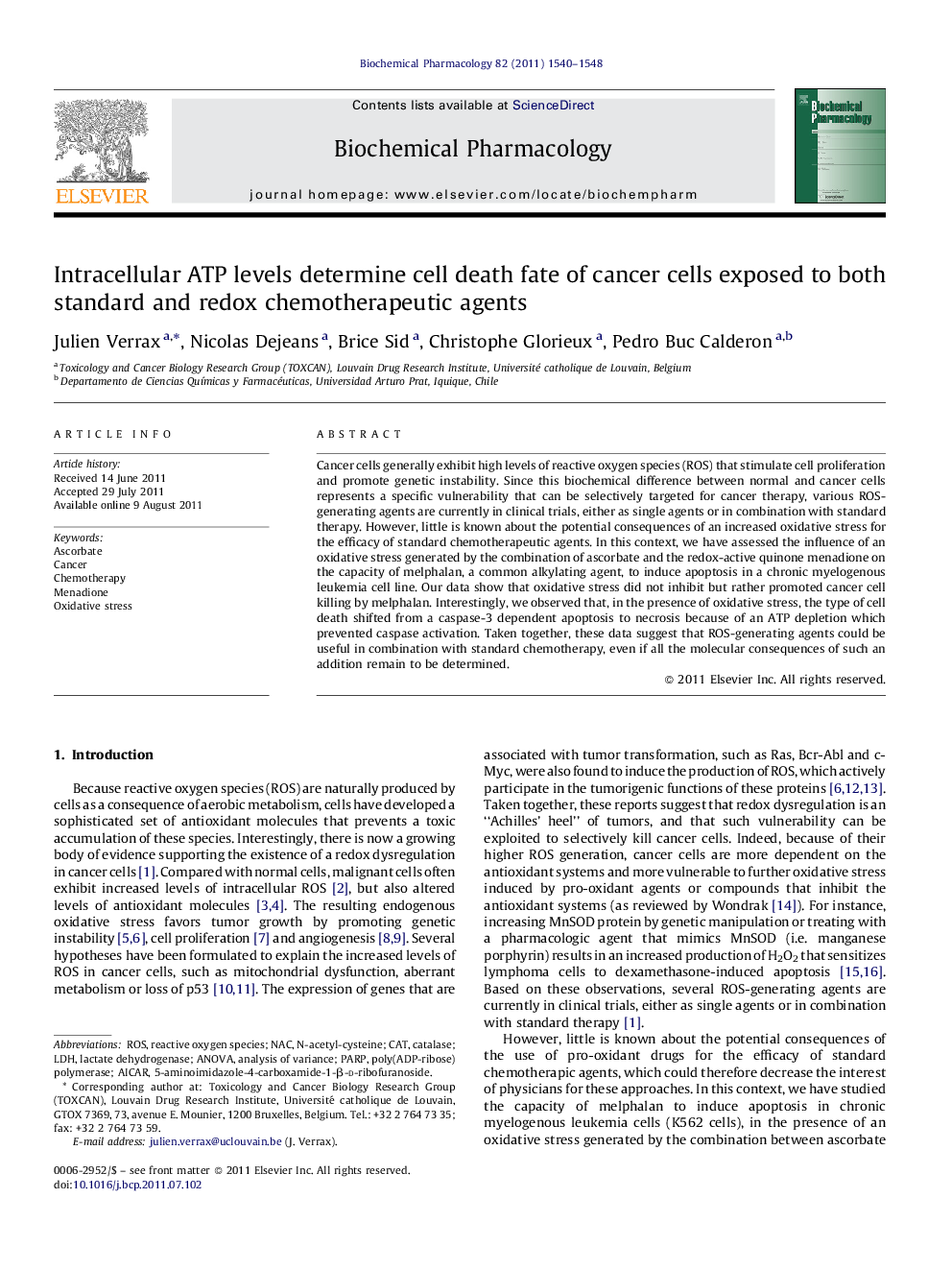| کد مقاله | کد نشریه | سال انتشار | مقاله انگلیسی | نسخه تمام متن |
|---|---|---|---|---|
| 2513021 | 1118389 | 2011 | 9 صفحه PDF | دانلود رایگان |

Cancer cells generally exhibit high levels of reactive oxygen species (ROS) that stimulate cell proliferation and promote genetic instability. Since this biochemical difference between normal and cancer cells represents a specific vulnerability that can be selectively targeted for cancer therapy, various ROS-generating agents are currently in clinical trials, either as single agents or in combination with standard therapy. However, little is known about the potential consequences of an increased oxidative stress for the efficacy of standard chemotherapeutic agents. In this context, we have assessed the influence of an oxidative stress generated by the combination of ascorbate and the redox-active quinone menadione on the capacity of melphalan, a common alkylating agent, to induce apoptosis in a chronic myelogenous leukemia cell line. Our data show that oxidative stress did not inhibit but rather promoted cancer cell killing by melphalan. Interestingly, we observed that, in the presence of oxidative stress, the type of cell death shifted from a caspase-3 dependent apoptosis to necrosis because of an ATP depletion which prevented caspase activation. Taken together, these data suggest that ROS-generating agents could be useful in combination with standard chemotherapy, even if all the molecular consequences of such an addition remain to be determined.
Figure optionsDownload as PowerPoint slide
Journal: Biochemical Pharmacology - Volume 82, Issue 11, 1 December 2011, Pages 1540–1548